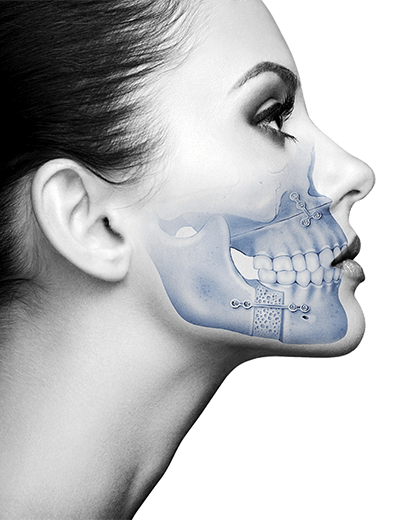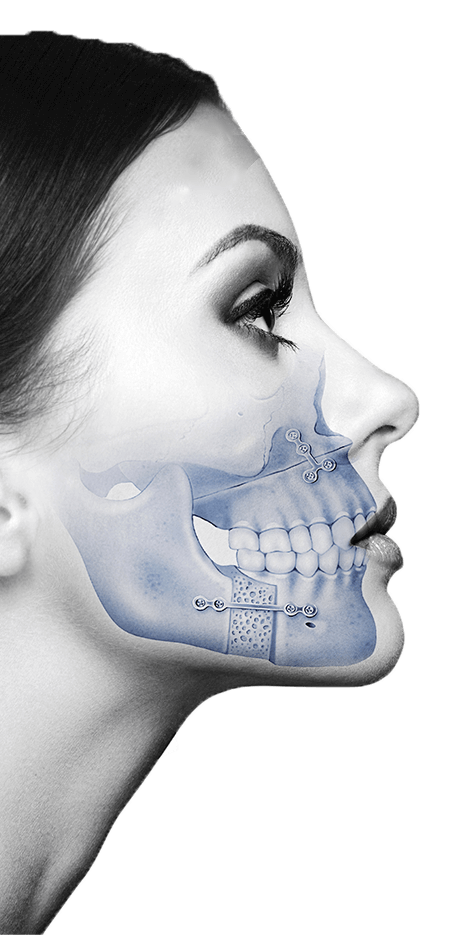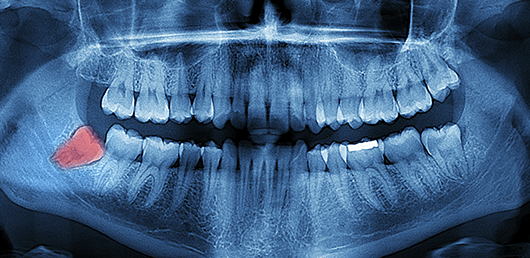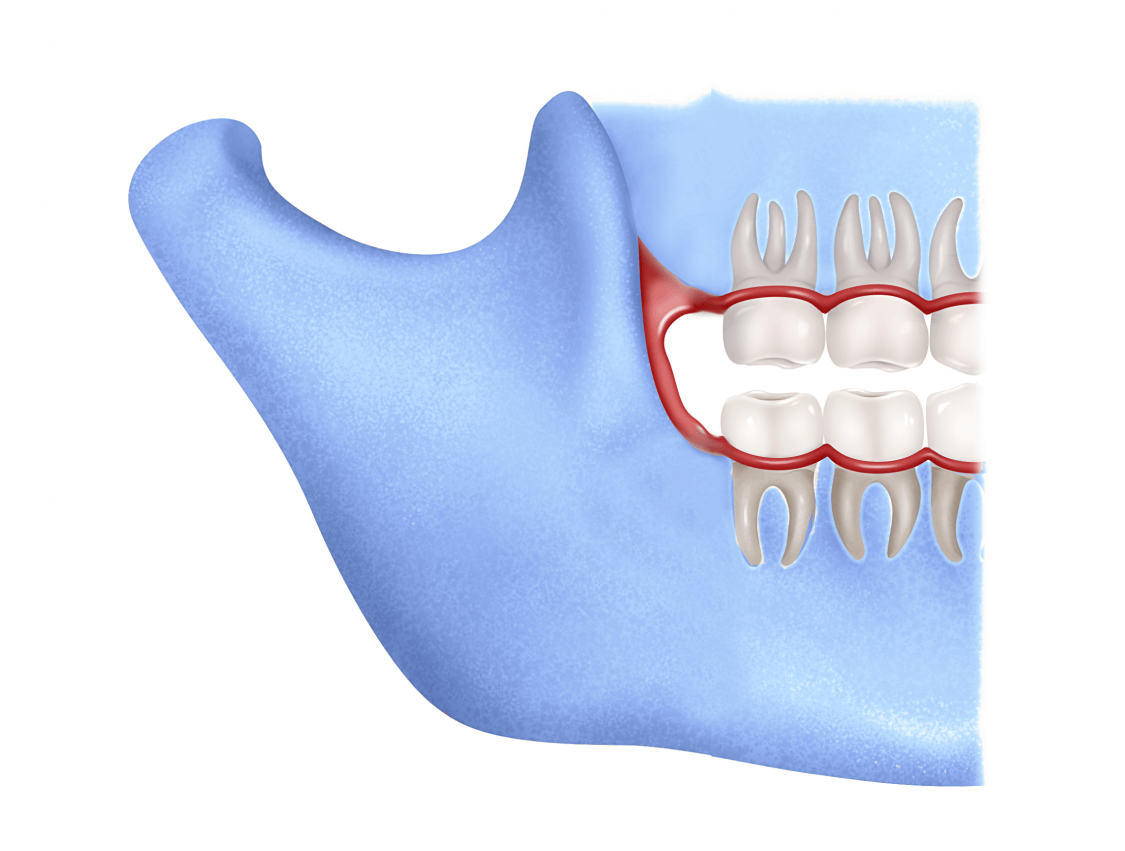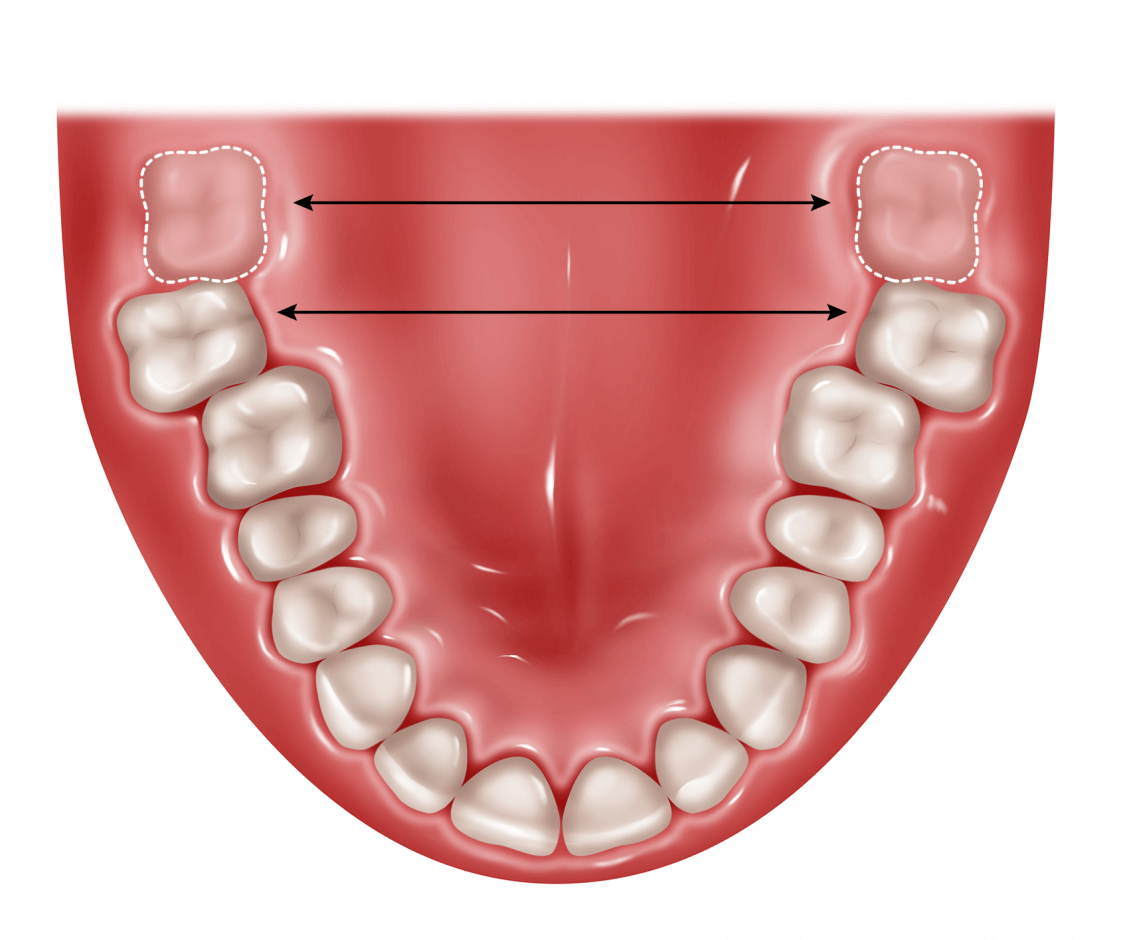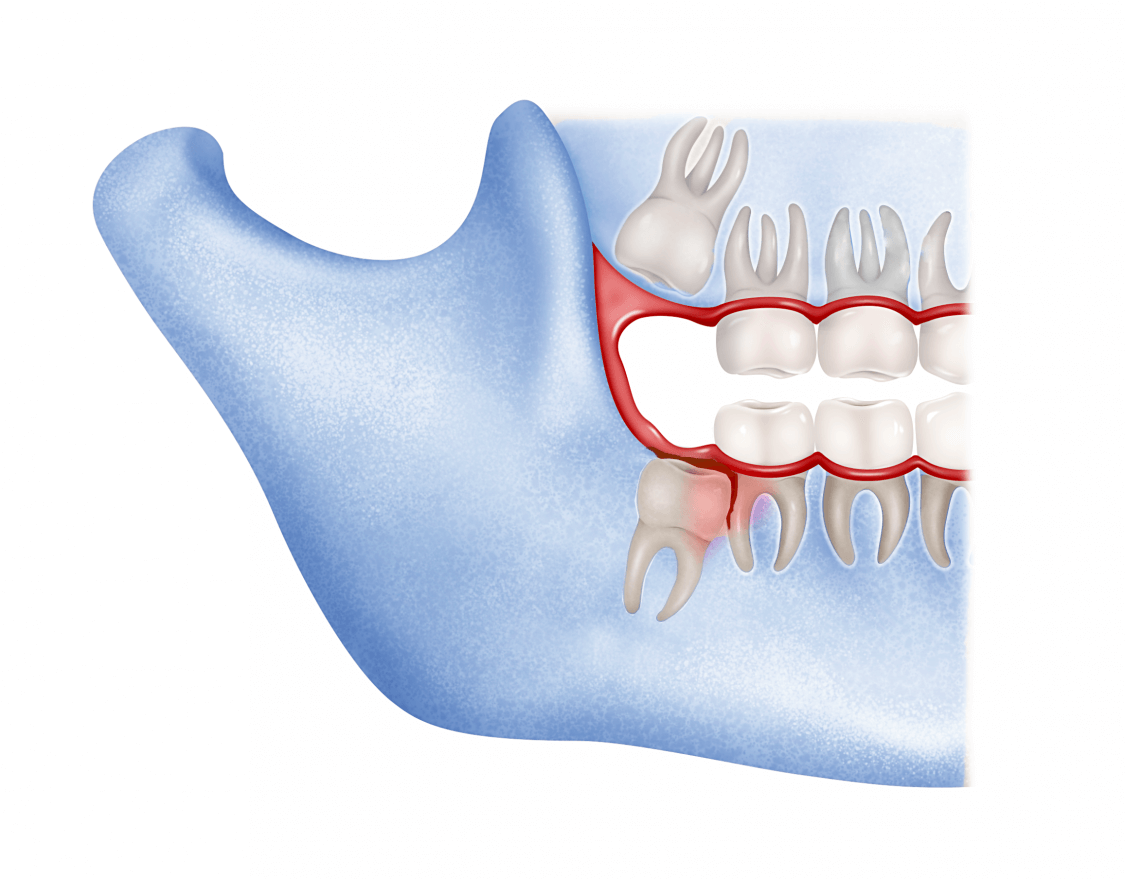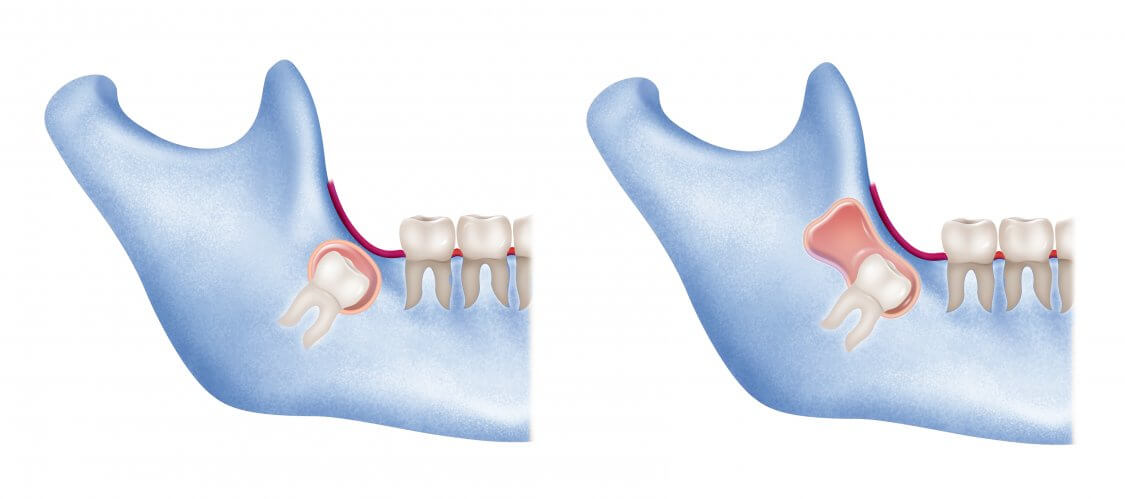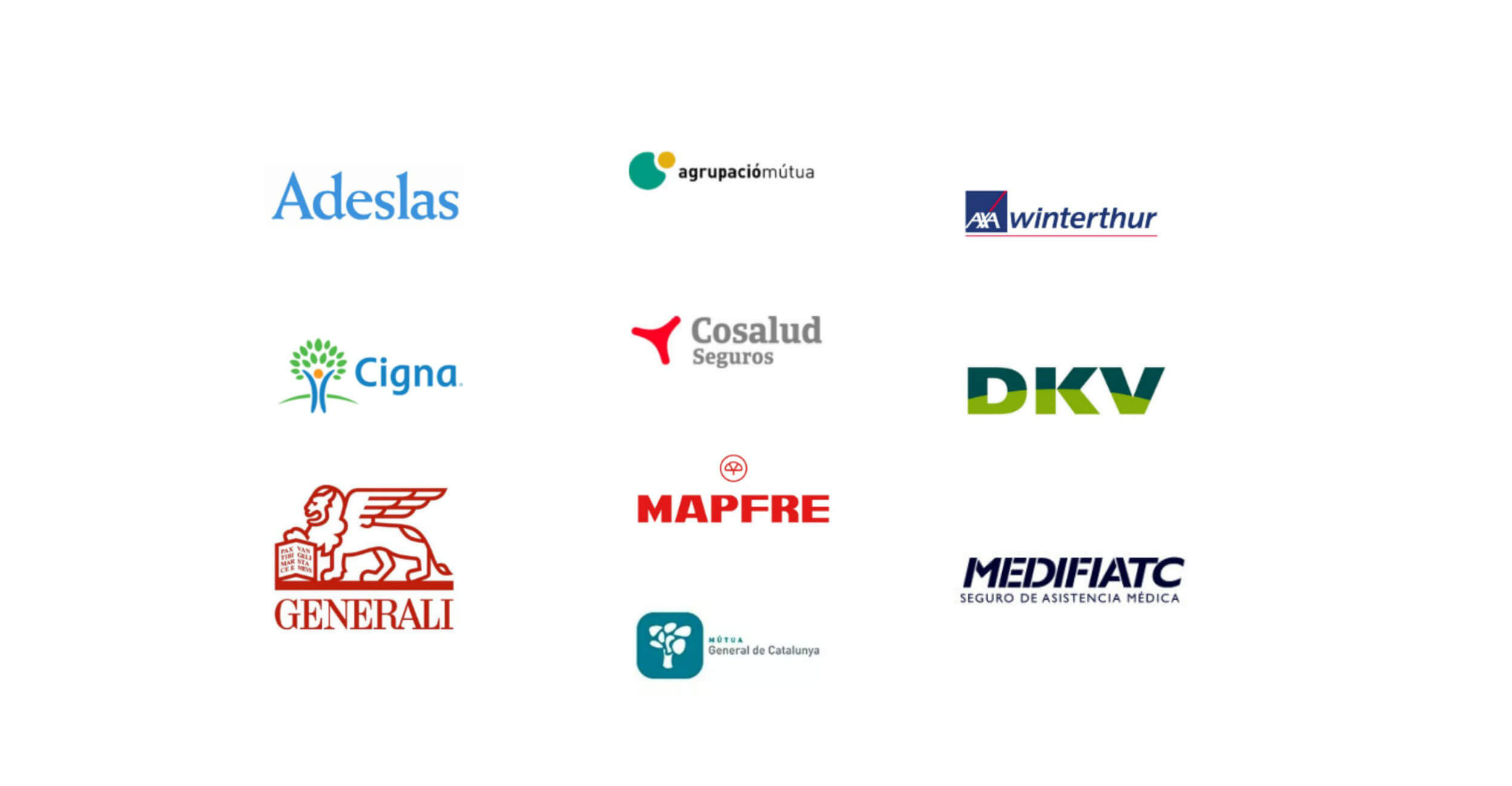Wisdom teeth are the last teeth to erupt, appearing normally in the period between 15 and 30 years.
Depending on their position, the wisdom teeth are classified as:
• Mesio-angled braces (have a forward inclination)
• Disto-angled (with backward tilt)
• Vertical
• Horizontal

